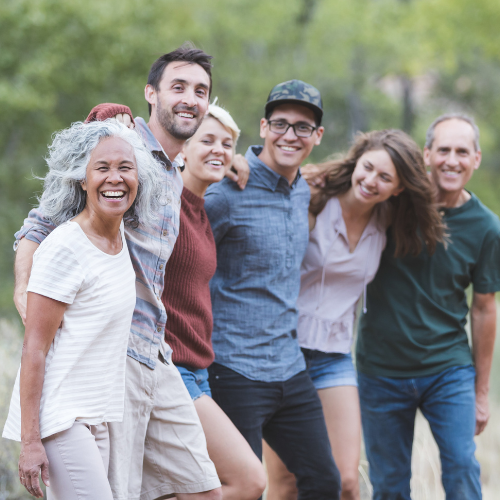Friends
Your relationship with the person with a brain injury will change, particularly if you they are experiencing physical, cognitive or behavioural challenges. You may notice that when you see them, it’s not the same. You may not fully understand what is happening to your friend, how to act, and even stop visiting them as much.
This happens a lot, and while it doesn’t feel good, it’s a challenging situation for all of you and it will take some work on both parts for your friendships to adjust and evolve.
Tips for maintaining friendships after brain injury
- Be patient
-
This is an adjustment for you, but it’s also an adjustment for your friend with a brain injury. They will need some time to get used to the changes in their relationship with you, and they will need your patience.
- Be honest and communicative
-
Tell your friend how you feel. More importantly, listen to what your friend feels and needs. This could mean hanging out at home rather than a coffee shop, slower conversation, or help understanding social cues. You won’t always know what they need, so the more questions you ask and the more honest you are, the better friend you will be.
- Find alternative ways to keep in touch
-
If your friend lives far away or you are unable to see them as frequently as you would like, keep in touch using email, texting, phone calls, video messaging, or even handwritten letters.
New relationships after brain injury
If you enter a relationship with someone post-injury, this may be different than other relationships you have had in the past. You may play more of an active role in day-to-day care if the survivor is your intimate partner. Since the relationship is new, you have an opportunity to build routines together. This can be great for both of you, because you’re able to learn about each other while developing your own system of roles and responsibilities with no attachments to the past or preconceived ideas.
New friend relationships may stem from support groups, new jobs, new neighbours, or other places where you meet people in your daily life. While it may feel awkward to talk about brain injury with a new friend, let them know you are there to talk about it when they are ready to take that step.
It can be difficult to form new relationships after a brain injury. Make sure to be open to relationships with new people, no matter their personal health situation. Socialization is incredibly important for people with brain injury, and your outreach could make their day. You can ask them for coffee, for a walk, for a phone call: whatever you would like to do, people will respond if they know you’re looking to continue building a relationship.
